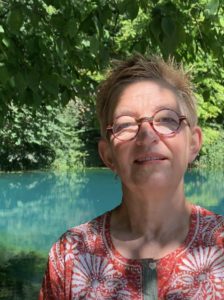 TV news shows depict a pitiful side of Brussels. Ratings axioms and mental laziness have reduced the city to a conglomeration of troubled youth, lawless murderers and trigger-happy gangsters. Now and then we see a Muslim extremist appear before the camera, sporting a Santa Claus beard, white tennis socks and a purely auxiliary person dressed in niqab.
TV news shows depict a pitiful side of Brussels. Ratings axioms and mental laziness have reduced the city to a conglomeration of troubled youth, lawless murderers and trigger-happy gangsters. Now and then we see a Muslim extremist appear before the camera, sporting a Santa Claus beard, white tennis socks and a purely auxiliary person dressed in niqab.
Oh well. What do you expect? The glorious summer terraces, the beautiful squares with benches and ancient trees, the glowing lawns of wide-spread parks, the renowned art collections and the overwhelming array of culinary delicacies from all over the world are not newsworthy anywhere else either. Those highlights of Brussels however, do explain why the city comes in fourteenth in the list of the most agreeable cities to live in. Just under Amsterdam but 18 positions higher than Paris and 24 above London. And yet, it is no easy love affair. Grim yet grand, posh yet poor, grey and green, delightful and depressing, this city is all that.
Brussels is like a mosaic of shards of glass, each reflecting varying degrees of light, depending on how you look at it. As a tourist, commuter or resident. As homeless, aristocrat or eurocrat. Those born here look at things differently than migrants – from near and far – of first, second or third generation.
The city is plural. My newly arrived gay Algerian boyfriend Ali lives in a different Brussels than me. He tells of the looks and insults his colourful shorts inspire in Kuregem and of the young girl next door from Liège whose smile is interpreted by neighbours as whorishness.
This is where I want to live, he says, while watching the pedestrians on the zebra crossing in Ma Campagne in Elsene. Teenage girls in hot pants and brightly coloured stockings discuss recent conversations with lovers, an African grandmother shuffles laboriously across the street and the owner of an alternative restaurant is flirting with a friend.
This new Bruxellois describes his city as an archipelago, a cluster of island communities surrounded by lots of water but few bridges. I try to explain that his judgement is too hard, too quick, too simple. I recount the story of an 11 year old adopted Haitian girl. She followed a week-long course on the outskirts of Brussels. Only on the second last day, she assured us, did the group of otherwise entirely white people treat her normally. In my Brussels, she claimed with absolute certainty, such things do not happen. There, they know that black is not the colour of your heart.
Her Brussels is mine. The city that is and the city that becomes. The city made by mothers and fathers, grandmothers and grandfathers, teachers, rubbish collectors, tram, bus and metro drivers, citizens and people without papers. With ourpoverty, our blindness, our arrogance, our tyranny. And with the opposite of all this.
